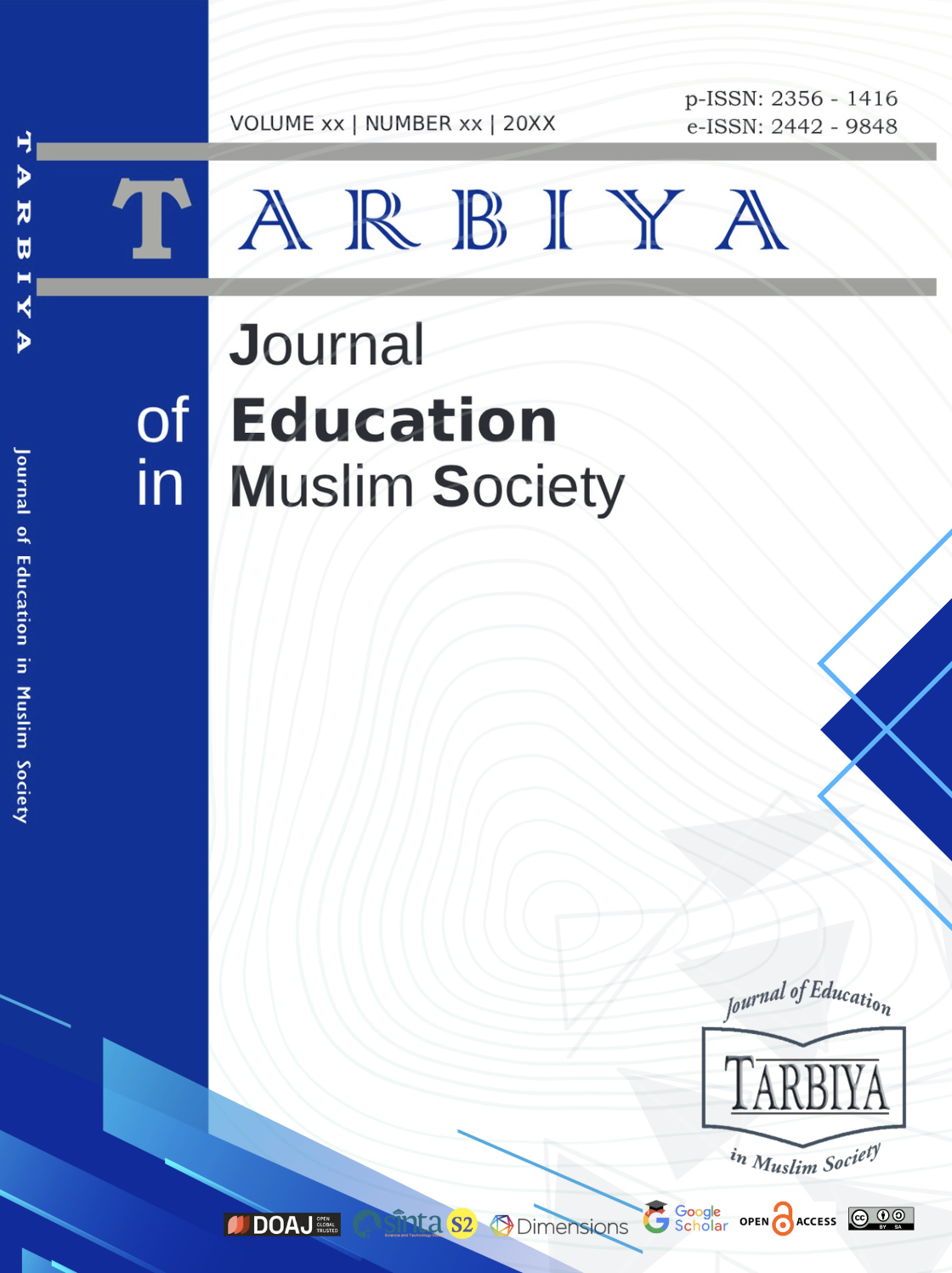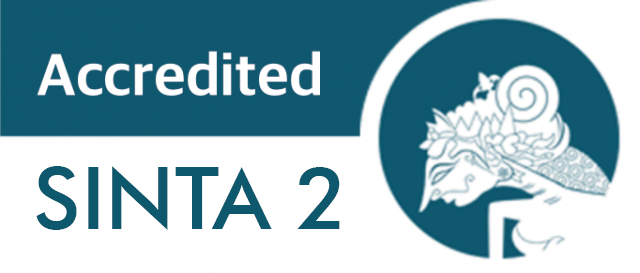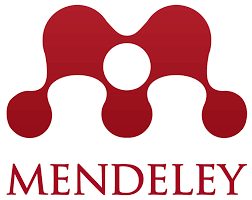Learning Innovation in Islamic Boarding Schools in East Java: Technology’s Role in Enhancing Teaching Effectiveness
DOI:
https://doi.org/10.15408/tjems.v12i1.45642Keywords:
learning innovation, educational technology, Islamic boarding school, Islamic education management, e-learning.Abstract
Abstract
Despite the increasing adoption of technology in education, Islamic boarding schools (pesantren) remain underexplored in terms of sustainable digital integration aligned with Islamic values. This study offers a comprehensive exploration of technology-based learning innovations within pesantren, examining how these innovations enhance pedagogical effectiveness while integrating principles of Islamic education management. Conducted as an in-depth qualitative case study across three pesantren in East Java, data were gathered through interviews, classroom observations, and documentation analysis. The study identified three core innovations: the use of digital learning media, the implementation of e-learning platforms, and the integration of mobile applications. These approaches have positively impacted student motivation, learning flexibility, and teacher-student engagement. However, challenges such as limited infrastructure and inadequate digital literacy among educators persist. Findings underscore the need for systematic teacher training, infrastructure investment, and culturally relevant digital leadership to ensure sustainable transformation. The study contributes to both academic discourse and practical policy development by offering context-specific recommendations for integrating technology in pesantren education without compromising core Islamic values.
Abstrak
Meskipun adopsi teknologi dalam pendidikan semakin meningkat, pondok pesantren masih relatif kurang dieksplorasi terkait integrasi digital yang berkelanjutan dan selaras dengan nilai-nilai Islam. Studi ini menawarkan eksplorasi komprehensif tentang inovasi pembelajaran berbasis teknologi di lingkungan pesantren, dengan menelaah bagaimana inovasi-inovasi tersebut meningkatkan efektivitas pedagogis sekaligus mengintegrasikan prinsip-prinsip manajemen pendidikan Islam. Penelitian ini dilakukan sebagai studi kasus kualitatif mendalam pada tiga pesantren di Jawa Timur, dengan data diperoleh melalui wawancara, observasi kelas, dan analisis dokumentasi. Studi ini mengidentifikasi tiga inovasi utama: penggunaan media pembelajaran digital, implementasi platform e-learning, dan integrasi aplikasi berbasis mobile. Pendekatan-pendekatan ini berdampak positif terhadap motivasi peserta didik, fleksibilitas belajar, serta interaksi guru dan siswa. Namun demikian, tantangan seperti keterbatasan infrastruktur dan literasi digital pendidik yang belum memadai masih menjadi hambatan. Temuan penelitian ini menekankan pentingnya pelatihan guru yang sistematis, investasi infrastruktur, dan kepemimpinan digital yang relevan secara kultural untuk memastikan transformasi yang berkelanjutan. Studi ini memberikan kontribusi pada wacana akademik maupun pengembangan kebijakan praktis melalui rekomendasi kontekstual terkait integrasi teknologi dalam pendidikan pesantren tanpa mengorbankan nilai-nilai Islam yang esensial.
References
Adeoye‐Olatunde, O. A., & Olenik, N. L. (2021). Research and scholarly methods: Semi‐structured interviews. JACCP: JOURNAL OF THE AMERICAN COLLEGE OF CLINICAL PHARMACY, 4(10), 1358–1367. https://doi.org/10.1002/jac5.1441
Ahmad Qusairi & Nur Hanifansyah. (2022). Psikologi Manajemen Dalam Pendidikan. Nidhomiyyah: Jurnal Manajemen Pendidikan Islam, 3(2), 116–128. https://doi.org/10.38073/nidhomiyyah.v3i2.830
Akhtar, M., Salman, A., Abdul Ghafoor, K., & Kamran, M. (2024). Artificial Intelligence, Financial Services Knowledge, Government Support, and User Innovativeness: Exploring the Moderated-Mediated Path to Fintech Adoption. Heliyon, e39521. https://doi.org/10.1016/j.heliyon.2024.e39521
Amiruddin, A., Asyari, G., Damanik, K. S., & Avira, D. (2024). Mengenal Jenis Pesantren Salafiyyah, Khalafiyyah dan Komprehensif di Pondok Pesantren Salafiyah Luqmanul Hakim Marelan. Universitas Pahlawan Tuanku Tambusai, 4(3). https://doi.org/10.31004/innovative.v4i3.12136
Arjuna, Figo Prilianto, Mutiara Ariska, Ghina Fadlilah Sukmara, & Tarsono. (2024). Kecerdasan Emosional Sebagai Katalisator Peningkatan Prestasi Akademik dan Kecakapan Sosial di Era Digital. Didaktika: Jurnal Kependidikan, 13(001 Des), 761–768. https://doi.org/10.58230/27454312.1355
As’ad, A., & Firmansyah, F. (2022). A New Paradigm on Human Resources Management in State Islamic University. AL-ISHLAH: Jurnal Pendidikan, 14(1), 71–84. https://doi.org/10.35445/alishlah.v14i1.1513
As’ad, M. (2021). ADAPTATION INTO ISLAMIC EDUCATION 4.0: AN APPROACH TO REDESIGNING A SUSTAINABLE ISLAMIC EDUCATION IN THE POST PANDEMIC ERA. AKADEMIKA: Jurnal Pemikiran Islam, 26(1), 19. https://doi.org/10.32332/akademika.v26i1.3122
Brown, C., White, R., & Kelly, A. (2023). Teachers as educational change agents: What do we currently know? Findings from a systematic review. Emerald Open Research, 1(3). https://doi.org/10.1108/EOR-03-2023-0012
Creswell, J. W., & Creswell, J. D. (2020). Research Design: Qualitative, Quantitative, and Mixed Methods Approaches. SAGE Publications.
Darmayanti, R. (2023). ATM sebagai bahan ajar dalam membantu pemahaman bilangan PI siswa SD, matematikanya dimana? Jurnal Penelitian Tindakan Kelas, 1(2). https://doi.org/10.61650/jptk.v1i2.219
Dignath, C., & Veenman, M. V. J. (2021). The Role of Direct Strategy Instruction and Indirect Activation of Self-Regulated Learning—Evidence from Classroom Observation Studies. Educational Psychology Review, 33(2), 489–533. https://doi.org/10.1007/s10648-020-09534-0
El-Sabagh, H. A. (2021). Adaptive e-learning environment based on learning styles and its impact on development students’ engagement. International Journal of Educational Technology in Higher Education, 18(1), 53. https://doi.org/10.1186/s41239-021-00289-4
Fajry, F., Annur, S., & Handayani, T. (2023). Strategi Promosi Prodi Pendidikan Sendratasik Dalam Meningkatkan Jumlah Mahasiswa. Munaddhomah: Jurnal Manajemen Pendidikan Islam, 5(1), 51–60. https://doi.org/10.31538/munaddhomah.v5i1.728
Hajar, I., Muassomah, M., Muhlis, W., Bani Sa’id, S. A. Z., & Fitra, M. N. (2024). Utilization of Wordwall Media in Arabic Vocabulary Learning Towards Eighth Graders. Jurnal Al Bayan: Jurnal Jurusan Pendidikan Bahasa Arab, 16(1), 55. https://doi.org/10.24042/albayan.v16i1.20451
Harmathilda, H., Yuli, Y., Hakim, A. R., & Supriyadi, C. (2024). TRANSFORMASI PENDIDIKAN PESANTREN DI ERA MODERN: ANTARA TRADISI DAN INOVASI. Karimiyah, 4(1), 33–50. https://doi.org/10.59623/karimiyah.v4i1.51
Imanina, K. (2021). PENGGUNAAN METODE KUALITATIF DENGAN PENDEKATAN DESKRIPTIF ANALITIS DALAM PAUD. JURNAL AUDI : Jurnal Ilmiah Kajian Ilmu Anak Dan Media Informasi PAUD, 5(1), 45–48. https://doi.org/10.33061/jai.v5i1.3728
Jędrzejczyk, W., & Brzeziński, S. (2022). The Importance of Social Media in Managing the Image of the Educational Institutions. CE 2021, 15(4), Jędrzejczyk, Waldemar and Brzeziński, Stanisław, The Importance of Social Media in Managing the Image of the Educational Institutions (December 24, 2021). CE 2021 vol.15 issue 4 p. 457-466, Available at SSRN: https://ssrn.com/abstract=4080880.
Kamsina, K. (2020). INTEGRASI TEKNOLOGI DALAM PEMBELAJARAN IMPLEMENTASI PEMBELAJARAN ILMU TEKNOLOGI DAN MASYARAKAT. Edueksos : Jurnal Pendidikan Sosial & Ekonomi, 9(2). https://doi.org/10.24235/edueksos.v9i2.7103
Kusuma, A. B., Astuti, W., & Setyawan, C. E. (2019). ANALISIS PENERAPAN MEDIA PEMBELAJARAN BAHASA ARAB BERBASIS APLIKASI GOOGLE CLASSROOM DI SEKOLAH TINGGI AGAMA ISLAM MASJID SYUHADA (STAIMS) YOGYAKARTA. Al-Manar, 8(2), 151–180. https://doi.org/10.36668/jal.v8i2.120
Mahmudah, M., & Hanifansyah, N. (2024). Implementation of the Jigsaw Learning Method for Maharah Qiro’ah Learning at MA As-Sholach, Kejeran Boyeman, Gondangwetan, Pasuruan. Lughawiyah: Journal of Arabic Education and Linguistics, Universitas Islam Negeri Mahmud Yunus Batusangkar, Indonesia, Vol 6(No 2), 165–184. http://dx.doi.org/10.31958/lughawiyah.v6i2.13456
Mahmudah, M., Nurhanifansyah, N., & Khalid, S. M. S. bin. (2024). Psycholinguistic Approaches to Enhancing Arabic Speaking Proficiency through Comic Strips. Arabiyatuna: Jurnal Bahasa Arab, 8(2), 804–826. https://doi.org/10.29240/jba.v8i2.11349
Makruf, I. (2020). PEMANFAATAN TEKNOLOGI INFORMASI DAN KOMUNIKASI DALAM PEMBELAJARAN BAHASA ARAB DI MADRASAH ALIYAH KABUPATEN SUKOHARJO. Arabi : Journal of Arabic Studies, 5(1), 79. https://doi.org/10.24865/ajas.v5i1.93
Mandagie, W. C., & Rana, J. A. S. (2023). Creating employee-based brand equity through integrated marketing communication and social media adoption: Indonesian private universities. International Journal of Data and Network Science, 7(2), 707–716. https://doi.org/10.5267/j.ijdns.2023.3.001
Maresova, P., Hruska, J., & Kuca, K. (2020). Social Media University Branding. Education Sciences, 10(3), 74. https://doi.org/10.3390/educsci10030074
Masnun, Segaf Baharun, & Sultan Abdus Syakur. (2025). Interactive Whiteboard as a Medium for Nahwu Learning: Bridging Technology and Arabic Grammar Education. International Journal of Arabic Language Teaching, 7(01), 1–20. https://doi.org/10.32332/ijalt.v7i01.9977
Momen, Md. A., Sultana, S., & Haque, A. K. M. A. (2019). Web-based marketing communication to develop brand image and brand equity of higher educational institutions: A structural equation modelling approach. Global Knowledge, Memory and Communication, 69(3), 151–169. https://doi.org/10.1108/GKMC-10-2018-0088
Mustoip, S. (2023). Urgensi Penguatan Pendidikan Karakter untuk Anak Usia Sekolah Dasar di Era Digital. Universitas Islam Bunga Bangsa Cirebon, 4(2), 284–291.
Nasir, Mohd., Rizal, S., Basri, & Pabbajah, M. (2024). Revolutionizing Teungku Dayah learning model: Exploring the transformative impact of technological advancements on Islamic education in Aceh. Cogent Education, 11(1), 2335720. https://doi.org/10.1080/2331186X.2024.2335720
Nikmatullah, C., Wahyudin, W., Tarihoran, N., & Fauzi, A. (2023). Digital Pesantren: Revitalization of the Islamic Education System in the Disruptive Era. Al-Izzah: Jurnal Hasil-Hasil Penelitian, 1. https://doi.org/10.31332/ai.v0i0.5880
Rachman, L., & Nurhanifansyah, N. (2024a). Inovasi Pendidikan Islam Era 5.0: Membangun Generasi Cerdas dan Berkarakter. Pelita: Jurnal Studi Islam Mahasiswa UII Dalwa, 2(1), 95–105. https://doi.org/10.38073/pelita.v2i1.1993
Rachman, L., & Nurhanifansyah, N. (2024b). Integrasi Project-Based Learning dalam Pendidikan Agama Islam: Strategi, Tantangan, dan Efektivitas. Adabuna: Jurnal Pendidikan Dan Pemikiran, 4(1), 23–34. https://doi.org/10.38073/adabuna.v4i1.2027
Rahmad Fuad & Iswantir M. (2024). Peningkatan Kualitas Pendidikan di Pesantren Melalui Inovasi Kurikulum. JURNAL HUKUM, POLITIK DAN ILMU SOSIAL, 3(2), 118–131. https://doi.org/10.55606/jhpis.v3i2.3735
Sánchez-Chaparro, T., Gómez-Frías, V., & González-Benito, Ó. (2020). Competitive implications of quality assurance processes in higher education. The case of higher education in engineering in France. Economic Research-Ekonomska Istraživanja, 33(1), 2825–2843. https://doi.org/10.1080/1331677X.2019.1697329
Sivakumar, A., Jayasingh, S., & Shaik, S. (2023). Social Media Influence on Students’ Knowledge Sharing and Learning: An Empirical Study. Education Sciences, 13(7), 745. https://doi.org/10.3390/educsci13070745
Solehudin, M., Hanifansyah, N., & Izzuddin, I. F. (2024). Enhancing Arabic Listening and Vocabulary Acquisition through AI-Powered Music: A Study on Suno AI. Arabiyat : Jurnal Pendidikan Bahasa Arab Dan Kebahasaaraban, 11(2), 175–188. https://doi.org/10.15408/a.v11i2.41994
Tlemsani, I., Zaman, A., Mohamed Hashim, M. A., & Matthews, R. (2023). Digitalization and sustainable development goals in emerging Islamic economies. Journal of Islamic Accounting and Business Research. https://doi.org/10.1108/JIABR-03-2023-0092
Widiastari, N. G. A. P., & Puspita, R. D. (2024). PENGGUNAAN MEDIA PEMBELAJARAN DIGITAL DALAM MENGEMBANGKAN MOTIVASI BELAJAR SISWA KELAS IV SD INPRES 2 NAMBARU. ELEMENTARY: Jurnal Inovasi Pendidikan Dasar, 4(4), 215–222. https://doi.org/10.51878/elementary.v4i4.3519
كريم عبد الحليم, إ. (2023). تطوير سياسات التعليم قبل الجامعي في ضوء منظومة التحول الرقمي ( دراسة تحليلية). المجلة التربوية لتعليم الکبار, 5(4), 1–30. https://doi.org/10.21608/altc.2023.347356
Downloads
Published
Issue
Section
License
Copyright (c) 2025 Zainal Abidin, Ahmad Qusairi, Fadhel Mubarak

This work is licensed under a Creative Commons Attribution-ShareAlike 4.0 International License.












